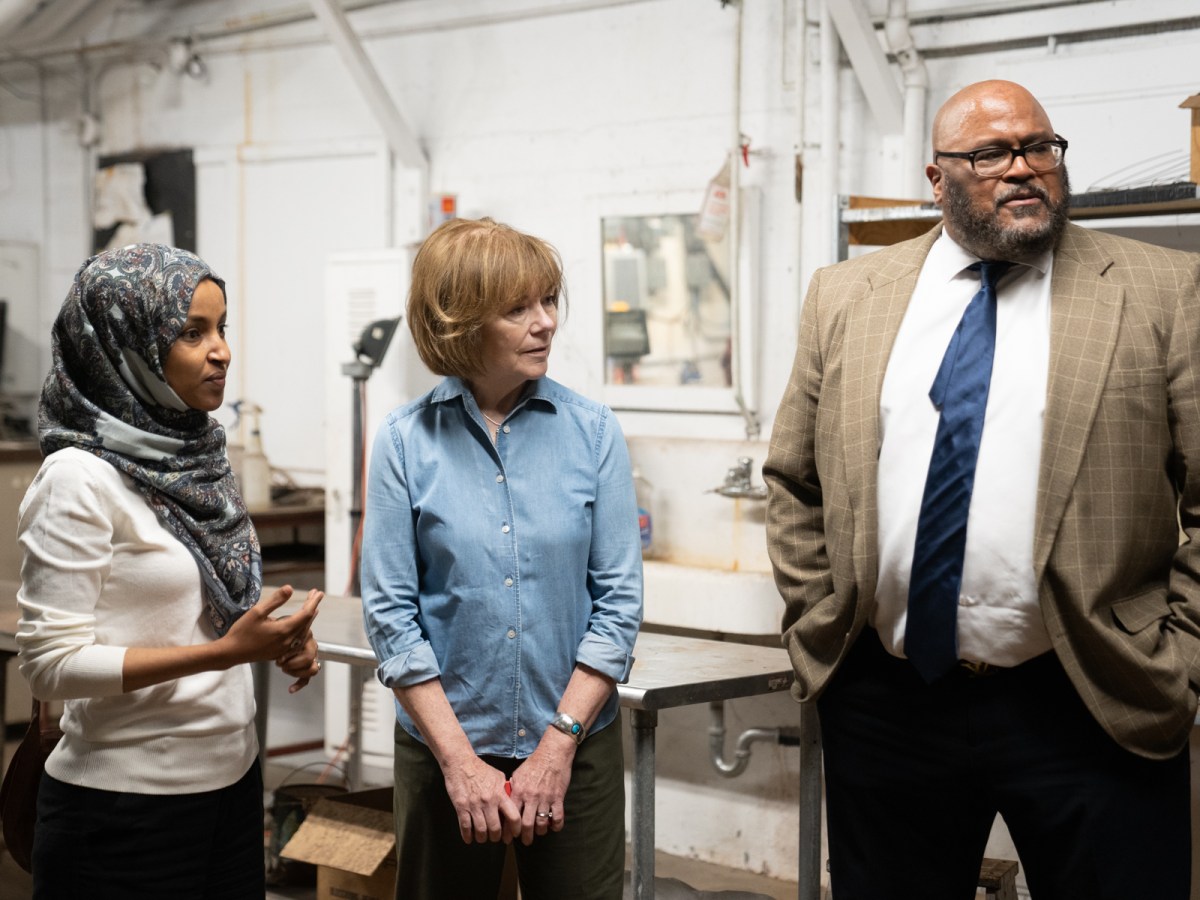Growing up in Kenya, Lillian Otieno was surrounded by a vibrant network of small farmers and backyard gardeners.
When she arrived at the Minnesota Department of Agriculture (MDA) after a globe-trotting career, her roots in Kenya’s local farm culture helped her see new possibilities in a state where a growing number of immigrants are seeking to start their own farms.
Last fall, Otieno became the first director of Minnesota’s Emerging Farmers program after six years as the program’s coordinator. In her new role, she aims to transform the office into a resource hub, addressing challenges such as land access and capital while fostering collaboration across agencies.
She has a big task. A 2017 report found that 99 percent of Minnesota farmers are white.
“When I first started, I could count the number of emerging farmers we were aware of or fully engaged,” she said. “Now different farming organizations and communities of color are emerging.”
Otieno’s journey in public service began with a focus on food safety, working with major grocery companies, and eventually leading outreach efforts for the MDA. Her diverse background, coupled with her unwavering dedication to equity, makes her a formidable force in championing the interests of emerging farmers in Minnesota.
“We have to be candid and transparent, and we have to let ourselves be okay with being uncomfortable, and we have to acknowledge issues that have happened, such as inequities and injustices,” she said. “You can’t change the past, but you can correct some things, and I believe there’s a lot we can do to move forward.”
During a recent Q&A with Sahan Journal, Otieno highlighted the multifaceted approach her office is taking, including language accessibility and equity considerations in grant programs.
This interview has been edited for length and clarity.
Who are the typical farmers that you’re working with? Why are they getting into farming?
The Emerging Farmers Office works with a diverse farming and producer community in Minnesota — that diversity is in language, race, geography and farming operations. They are growing specialty crops, vegetables, mixed operations with farm animals, value-added products, including interest in hydroponic farming opportunities and storefronts.
Like most of the country, Minnesotans value where their food is coming from, and so do emerging farmers and producers, who are seeing farming as a viable economic opportunity. They are also introducing us to new crops and foods, enhancing our palates with cultural options that speak to the diversity of Minnesotans. This provides for a rich cultural inclusiveness in foods that have a ready market.
The pandemic made it very clear that local, regional food systems are vital to our food supply. Emerging farmers are aware of those tensions caused by the pandemic in the supply chain, and are getting into farming to fill this gap.
What are your goals for the office?
Access to land is one of the biggest issues that impact emerging farmers. The reason it’s a big challenge is that most emerging farmers are in the metro area, and most land in the metro area is very expensive. When we go out to rural Minnesota, it’s also difficult to get land, and when you do find land, there are other challenges that come up.
These challenges include the distance, social justice issues such as not feeling welcome because they don’t see individuals of color, or it takes them away from their families and becomes a difficult situation in many ways.
For this office, we want to work towards being a one-stop shop. We’re looking at programs, projects, and policies within the MDA and cross-agencies to better serve emerging farmers. The big picture is leveraging resources, finding access to capital, and advocating for emerging farmers across different agencies and stakeholders.
Tell me about some success stories you’ve seen since working with the Emerging Farmers office.
Emerging farmers feel empowered, they are engaged in the civic and Legislative process. This was not something we witnessed years ago, seeing emerging farmers testifying at hearings in Minnesota and Washington, D.C., and connecting with policymakers. Some have bought farms, though their journeys have not been easy.
Farmers have organized into groups and formed their own farm and producer organizations; there is more representation and participation in farmer conferences and input sessions with farmers taking the lead and having their voices represented as speakers, panelists, or facilitators. We have also seen an uptick in numbers of farmers of color, and more interest in farming.
The Emerging Farmers Working Group is in its fourth cohort. To date we have had over 38 members serving two-year terms and representing approximately 25 counties. Some of our past working group members have become “mentors” of sorts to fellow farms.
Why are you interested in leading the Emerging Farmers’ office?
Equity is really important to me, making sure that people receive the resources they need. I grew up knowing that we had farms and people would grow food in their backyards, and my family was no exception. My mother is an avid farmer, she has a very good green thumb. So doing this work was never that foreign to me, it was just like doing this work in a different land, with different resources and very different climate conditions.
I think that’s where all those experiences played a role in me being very comfortable in this space of growing food and advocating for emerging farmers.
I am very passionate about making sure people have the resources that they need. I am very passionate about equity. I am very passionate about making sure if someone wants to participate in this economy or wants to participate in any field out here, that they should have a fair shot.
Correction: Due to an editing error, a previous version of this story misidentified the profession of those surveyed in a 2017 study.






